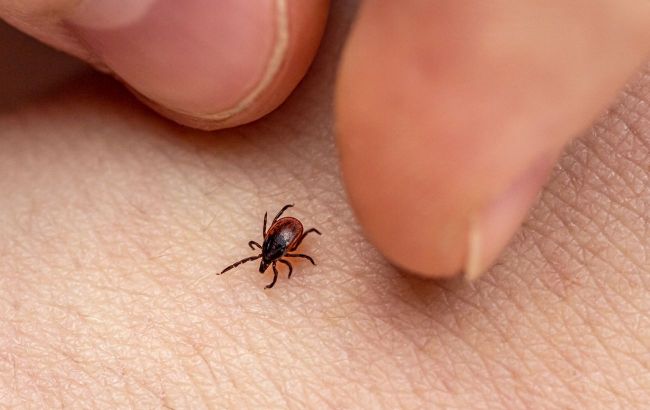This blood group attracts ticks like magnet: Be careful!
 Which blood group ticks love (photo: Getty Images)
Which blood group ticks love (photo: Getty Images)
Scientists have found that ticks have clear preferences regarding the blood group of their victims, and people with one particular group are at significantly higher risk of becoming a target. Which people are bitten most often by ticks, and what does blood group have to do with it?
Which blood group do ticks love?
With the arrival of warm days, not only do walks in nature become more frequent, but also the activity of dangerous neighbors—ticks—whose bites can lead to serious illnesses. For a long time, it was believed that these bloodsuckers attack indiscriminately, guided by body heat, the smell of sweat, and carbon dioxide levels. However, recent scientific studies shed light on an unexpected pattern: it turns out that ticks have their taste preferences, and people with certain blood groups become a much more attractive meal for them.
An international team of scientists from Masaryk University in Brno, Czechia, conducted a series of experiments to determine which blood group is most desirable for these dangerous parasites. The results of their research, published in the scientific journal "Annals of Agricultural and Environmental Medicine," became a real revelation for many.
During the experiment, researchers collected blood samples from different groups of volunteers and placed them on filter paper in Petri dishes. After that, ticks were placed into the dishes—the most common European species, Ixodes Ricinus, which is the main carrier of bacteria that cause Lyme disease. For a certain period, scientists observed the behavior of the parasites, recording which blood samples they showed the most interest in.
The results of the experiment were quite unambiguous: most often, ticks chose blood of the second group—A (II). This blood group turned out to be the most attractive to them, significantly ahead of other options. To confirm this pattern, the experiment was repeated more than a hundred times, and in each case, a similar tendency was observed.
In contrast, the least interest from ticks was shown in the third blood group—B (III). People with this blood group turned out to be the least prone to attention from the bloodsuckers under laboratory conditions. As for the first (O) and fourth (AB) blood groups, they showed average attractiveness to ticks.
People with the second blood group should be especially cautious and take additional measures to protect themselves from ticks, said the author of the study, Dr. Alena Zakovska.
Scientists still cannot provide a complete explanation for such "gastronomic" preferences of ticks. One of the hypotheses is that certain biochemical factors or specific odors emitted by the skin of people with different blood groups may attract parasites to varying degrees. Further research in this area may help uncover these mechanisms and develop new, more effective means of protection against ticks.
It is important to note that the results of laboratory studies do not always fully reflect the situation in a real environment. Ticks are guided not only by the smell of blood, but also by other factors such as body temperature, skin moisture, and the level of carbon dioxide exhaled during breathing. Therefore, owners of other blood groups should not lose vigilance and should not neglect safety rules while outdoors.
How to protect yourself from ticks regardless of blood group:
Wear protective clothing
When going out into nature, choose light-colored clothing with long sleeves and pant legs, which should be tucked into socks.
Use repellents
Apply special tick repellents to your skin and clothing according to the instructions.
Avoid dense grass and shrubs
Ticks most often live in such places.
Carefully check yourself and your loved ones
After returning from a walk, carefully inspect your skin, especially in folds and the hairy part of the head.
Check clothes and gear
Ticks can cling to things, so they should also be thoroughly inspected.
What to do if a tick still bites you:
- Do not panic: try to carefully remove the tick with tweezers or a special tool, grabbing it as close to the skin as possible.
- Do not twist the tick: this can lead to its parts remaining in the skin.
- Treat the bite site: rinse the wound with antiseptic.
- See a doctor: if after the bite you feel unwell, develop a fever, or notice a rash, seek medical help immediately.
This material is for informational purposes only and should not be used for medical diagnosis or self-treatment. Our goal is to provide readers with accurate information about symptoms, causes, and methods of detecting diseases. RBС-Ukraine is not responsible for any diagnoses that readers may make based on materials from the resource. We do not recommend self-treatment and advise consulting a doctor in case of any health concerns.

